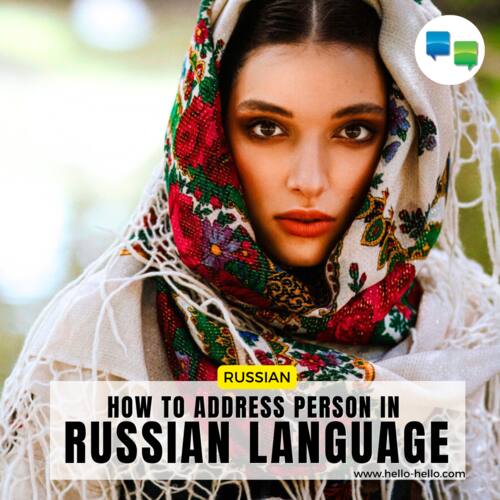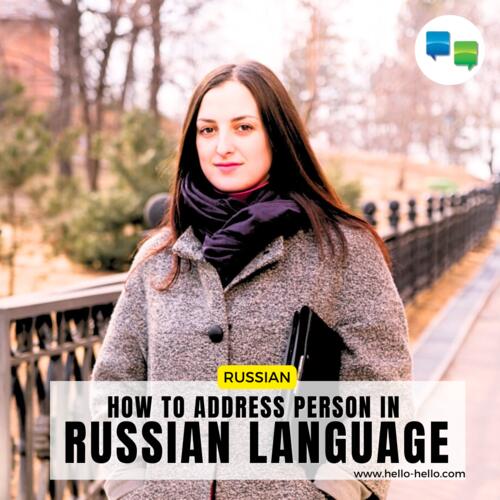The Russian language, like many other languages, has various forms of address depending on the level of formality, social context, and the relationship between speakers. Properly addressing someone in Russian is crucial for establishing respect, politeness, and understanding social norms. Here’s a guide on how to address people in Russian as shared by Hello-Hello, top Russian language learning app developers for iOS and Android devices in this blog.
- Using Titles and Surnames – In formal settings or when speaking to someone older or in a position of authority, Russians generally address people by their surname followed by a title. The most common titles are “господин” (gospodin) for men and “госпожа” (gospozha) for women, similar to “Mr.” and “Mrs.” in English. For example, if someone’s last name is Ivanov, you would say “Господин Иванов” (Gospodin Ivanov) for a man and “Госпожа Иванова” (Gospozha Ivanova) for a woman.
- First Names and Patronymics – In Russia, patronymics are commonly used to address people with a sense of respect. A patronymic is derived from the father’s first name and is commonly used in formal speech. For men, the patronymic ends in -ович or -евич (e.g., Ivanovich, Alexeyevich), and for women, it ends in -овна or -евна (e.g., Ivanovna, Alexeyevna). So, to address someone formally, you would say “Иван Иванович” (Ivan Ivanovich) or “Мария Ивановна” (Maria Ivanovna).
- Using Informal Address – In informal settings, or when speaking to friends, family, or people of the same age, Russians often use first names only. The use of first names without patronymics is typical among close friends or peers. For example, “Аня” (Anya) or “Дмитрий” (Dmitry).
- The Use of “Вы” and “ты” – The distinction between “вы” (vy) and “ты” (ty) is very important in Russian. “Вы” is the formal version of “you” and is used to address someone with respect or in formal situations. It’s also used when addressing someone you don’t know well or someone older. On the other hand, “ты” is informal and used with close friends, family, or peers. It’s important to note that switching from “вы” to “ты” in Russian can be a significant cultural shift. This is usually done after both people mutually agree, typically when a friendship develops.
- Respecting Hierarchy and Gender – In Russian society, there is an emphasis on respect for authority, age, and social status. Always address older people or those in positions of power more formally. Gender also plays a role, as using “госпожа” for women is seen as polite, whereas using “господин” for men is respectful, especially in formal settings. Understanding how to address people correctly in Russian involves knowing when to use formal titles, first names, or patronymics, as well as the appropriate usage of “вы” and “ты”. By adhering to these norms, you show respect and help create a positive impression in both personal and professional interactions in Russia.

Learn Russian (Hello-Hello) is a full-fledged language course with 30 LESSONS developed in collaboration with the American Council on the Teaching of Foreign Languages (ACTFL), so you can be assured that these lessons follow an effective research-based methodology. All lessons are conversational based on realistic dialogues and situations, rather than a collection of out-of-context words and phrases. iTunes store link of Learn Russian (Hello-Hello) Android Play Store Link – Learn Russian language


